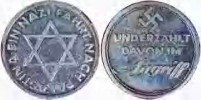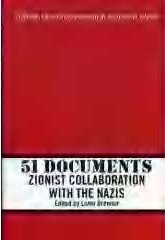While Weizmann intrigued with the politicians in London, Vladimir Jabotinsky had obtained tsarist support for a volunteer Jewish Legion to help Britain take Palestine. There were thousands of young Jews in Britain, still Russian citizens, who were threatened with deportation to tsarist Russia by Herbert Samuel, the Jewish Home Secretary, if they did not “volunteer” for the British Army. They were not intimidated; they would fight neither for the Tsar nor his ally, and the government backed down. The legion idea was a way out for the embarrassed Allies.
The Turks helped make the scheme into a reality by expelling all Russian Jews from Palestine as enemy aliens. They were also unwilling to fight directly for tsarism, but their Zionism led them to follow Jabotinsky’s co-thinker Yosef Trumpeldor into a Zion Mule Corps with the British at Gallipoli. Later Jabotinsky proudly boasted of how the Mule Corps – and the aid of the anti-Semites in Petersburg-helped him to obtain his goal:
it was that “donkey battalion” from Alexandria, ridiculed by all the wits in Israel, which opened before me the doors of the government offices of Whitehall. The Minister of Foreign Affairs in St Petersburg wrote about it to Count Benkendoff, the Russian Ambassador in London; the Russian Embassy forwarded reports on it to the British Foreign Office; the chief Counsellor of the Embassy, the late Constantine Nabokov, who afterward succeeded the Ambassador, arranged for the meetings with British ministers. [ii]
----------
i. Meyer Weisgal (ed.), The Letters and Papers of Chaim Weizmann, Letters, vol.VII p.81. After the Holocaust Weizmann could not reveal the anti-Semitism of Zionism’s great patron. He changed the record in Trial and Error: “Mr Balfour mentioned that, two years before, he had been in Bayreuth, and that he had talked with Frau Cosima Wagner, the widow of the composer, who had raised the subject of the Jews. I interrupted Mr Balfour ...” (p.153).
ii. Vladimir Jabotinsky, The Story of the Jewish Legion, p.74.



No comments:
Post a Comment